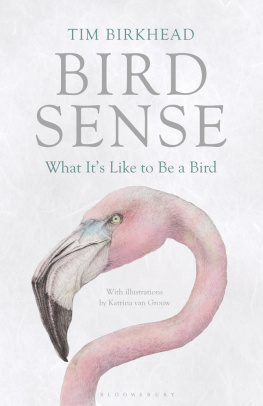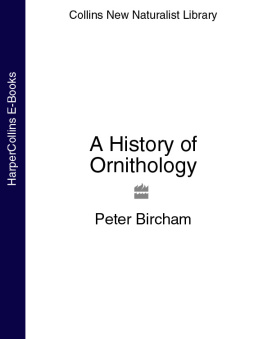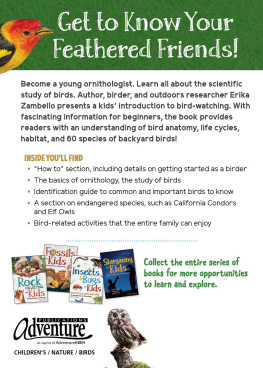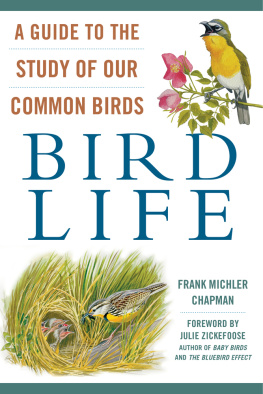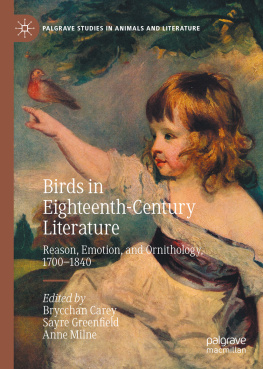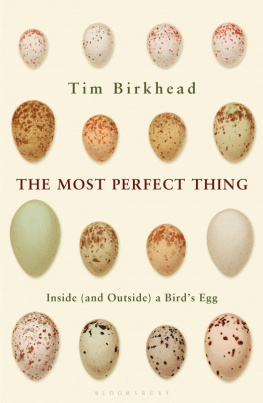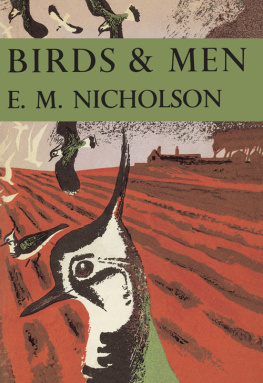He digested the whole history of nature with that spirit and judgement that it always appeared new; with that care and diligence that he was always constant to himself; and with that integrity that he has ever been esteemed a faithfull interpreter of nature
Memorial to Francis Willughby in Middleton Church
Until very recently Francis Willughby was a little-known seventeenth-century natural historian overshadowed by his brilliant Cambridge tutor, friend and collaborator, John Ray. Having barely begun his scientific career, Willughby died in 1672 at the age of just thirty-six. Ray, through his own much longer lifetime, brought Willughbys works to fruition, and made sure they were published. Paradoxically, this selfless act resulted in Ray unwittingly monopolising the accolades not without some justification for what was very much a joint effort. The widespread perception of Rays intellectual superiority over Willughby is largely a consequence of an adulatory biography of Ray dating from 1942, by Canon Charles Raven, whose motivation, in part at least, was to correct an earlier perception that Willughby was the true genius of the two. However, when Ravens book was in press he learned that there existed an extensive Willughby family archive. Realising what he might have missed, he was able to do little more than add a note to the proofs saying: Some day a book on him & his collection must certainly be written. The Middleton Collection as it is now known, lodged in the Nottingham University Library, provided much of the material for the present book, and now allows us to paint a far more complete portrait of Willughbys short life. Some sense of the collections richness can be gleaned from the fact that after being invited to view Willughbys bird paintings and pressed plants in April 1942, after his book was published, Raven wrote to thank Lord Middleton and to tell him that it was one of the most thrilling experiences of his working life.
My own involvement with Francis Willughby was the result of assuming Canon Ravens persuasively detailed case to be correct and that Ray of Birds, and content, celebrated the contribution that John Ray had made to ornithology, in part through his book The Wisdom of God (1691). After I had photographed the portrait, the elderly Lord Middleton (Francis Willughbys descendant) and his wife invited me for lunch. During our conversation I commented on Rays brilliance, partly because it was true, but also because I knew so little about Francis Willughby. Lady Middletons reaction was a rebuke of such ferocity that it took my breath away. Her husband, embarrassed I suspect, said nothing. Lady Middleton made it very clear to me that the genius was Willughby rather than Ray, who, she said, was a mere servant. What I did not realise at the time, as will become apparent, was that by attributing the success of their joint ventures to Ray I had reopened a deep wound inflicted some three and a half centuries earlier. Hastily, I moved the conversation on, but as I drove home later that day, I reflected on Lady Middletons reproach and in a flash it came to me that Francis Willughby was in need of some attention.
Soon after starting my investigations it became clear why Willughby has been so neglected by those interested in the history of science: most of his original notes and letters have been lost. This loss is a consequence of Willughby dying before his time and before his talents had been fully recognised; but also paradoxically it is due to the efforts of his friends and family, when they eventually realised his significance, as they exchanged vital documents in an effort to preserve Willughbys memory. In contrast, John Ray lived long enough to become famous during his own lifetime, while his colleagues took care to preserve his correspondence and notes after his death. Ray was a prolific, diligent letter-writer and note-keeper, and by publishing much of his own work he guaranteed his efforts a permanence that Willughbys lacked. On top of this, the lives of the two men were intimately intertwined: they studied together, travelled together, discussed ideas together, and lived and worked under the same roof for years. This means that while the writings of John Ray provide a wealth of material about Willughby, we have little choice but to view the latter largely through Rays eyes. Given the priority that the two men gave to objectivity in the way they conducted their science, it is unfortunate that Rays early portrait of Willughby is not an entirely neutral one.
After my visit to the Middleton home, I sought and obtained funding from the Leverhulme Trust for what they called an International Network Grant: a scheme to bring together academics from different countries to focus on a single project. The Willughby Network comprised fifteen members with expertise spanning a wide range of topics in the history of science and linguistics, with myself as the sole scientist. A major source of information for us all has been the hoard of Willughby material held by the family, which Raven was unable to use in his book. Those papers, together with other remarkable discoveries, allow us to rebuild Francis Willughbys reputation.
This is a biography of science recounted through the activities of one man and his like-minded colleagues, at the dawn of the scientific revolution. Francis Willughbys short life spanned one of the most remarkable periods of history an age when it became clear that science or the new philosophy, as he and his colleagues called it, had the potential to explain the wonders of the natural world. It has been a challenge for me to imagine a world on the brink of scientific discovery: I have had to keep checking myself from criticising Francis for knowing so little. Things that seem so blindingly obvious today were far from obvious then, and it is surprisingly difficult to throw off three and a half centuries of natural history knowledge and imagine oneself so ignorant and uncertain. One way of doing this is to draw comparisons between what we know today and what was known in the past, but herein lies the potential trap of what historians of science call Whiggishness, that is, interpreting past events through a modern lens. I have tried to avoid this, but as a scientist I have felt it essential to place Willughbys observations in a modern context so as to better evaluate them. I have also tried to relive some aspects of Willughbys life including the excitement and sheer novelty of discovering the external features and internal anatomy of birds in his quest for essential identification marks. Franciss brief journey was full of excitement and, among other things, the realisation that discovery is a way of knowing. It is a pleasure I have shared, both through him, but also through my own ornithological research. Theres nothing like the quest for knowledge for getting you out of bed in the morning.
Francis Willughby has been referred to as a virtuoso, a term used to distinguish him, and people like him, from others in the seventeenth century who were academics, employed at the universities of Oxford, Cambridge and elsewhere. The term virtuoso reflects Willughbys status as an amateur whose social position as a member of the landed gentry freed him from the necessity of earning a living at a university. Of course, virtuoso also implies unique expertise and an interest in many things: in short, a polymath.
Todays scientists, by contrast, are almost all specialists, even though they are expected to be both experts and generalists. Knowledge is now so extensive and growing at such a rate that few academics have the intellectual appetite, ability or opportunity to be polymaths. The surge in knowledge following the scientific revolution in the seventeenth century was so great that by the mid-1800s it was deemed impossible for anyone to know everything, although it was still possible to be an expert on a wide range of subjects. Francis Willughby didnt know everything of course, but he was considered to be more knowledgeable about natural history than anyone else in the mid-1600s. By a fortunate set of circumstances he found himself at the right place at the right time surrounded by the right group of people engaged in an entirely novel way of looking at nature. Willughby was there at what I consider to be the inception of modern science, and became one of its most interesting and impressive proponents.


